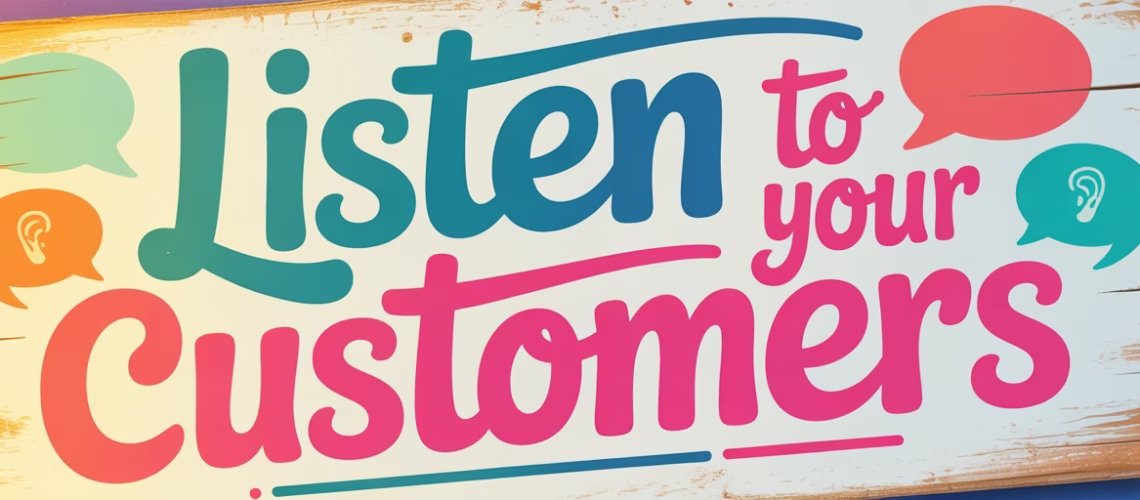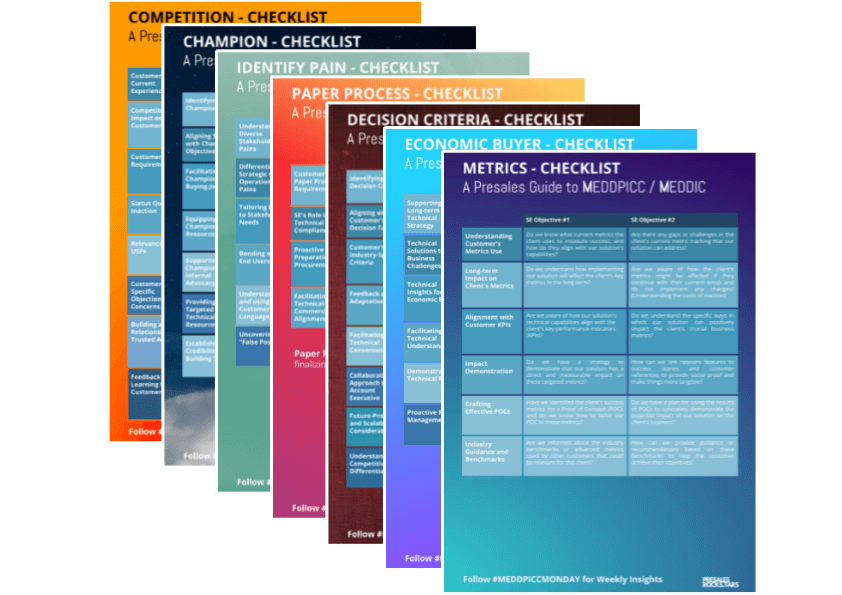Most people think they struggle with discovery because they don’t know the “right” questions.
But that’s not the real problem.
The real problem is simple: they don’t listen.
There are endless books on discovery.
There are checklists, frameworks, cheat sheets.
You can literally read your next question from a piece of paper.
And still, most discovery calls fail.
Not because the questions are bad.
Because the person asking them is not paying attention to what the customer actually says.
What usually happens
Someone asks a good, basic question:
“Can you walk me through your current process?”
The customer gives them gold:
“Right now, it’s a lot of manual work. We have to pull a CSV, put it into a shared folder…”
And what happens?
The SE or AE jumps straight into solution mode:
“Okay. We can automate that with scheduled exports. We’ll show that in the demo.”
Boom.
Conversation dead.
Discovery over.
The customer shared a problem.
Instead of exploring it, the seller slapped a solution on top of it.
And this is what I see in almost every discovery call I review.
How real discovery works
Real discovery starts when you stop thinking about your product.
And start listening for what I call “magic words.”
These are small words that hide big problems:
- “manual”
- “slow”
- “too long”
- “error-prone”
- “expensive”
- “tedious”
Each of these words is a signal.
Your cue to go deeper.
Your moment to understand the real pain behind the surface.
In the example above, the magic word was manual.
That’s your entry point.
What you should ask instead
When you hear a magic word, pause.
Say it back to them.
And unpack it.
- “Manual? What exactly do you have to do manually?”
- “How often does this happen?”
- “How long does it take today?”
- “What happens when something goes wrong?”
This is where the real insight comes from.
Maybe “manual” means a task takes 5 minutes once a quarter.
Or maybe it means 5 hours every week and breaks half the time.
You don’t know unless you ask.
And suddenly you have a business case
Here’s how a simple cue word can turn into something concrete:
Slow = 5 hours per week
5h × 52 = 260h per year
260h × 50€ hourly cost = 13.000€ per year
That’s a business case built from one word.
And that’s before you even talk about frustration, delays, errors, or missed opportunities.
All because you listened, instead of rushing to the next question.
Why this matters
Good discovery is not about volume.
It’s not about having the “perfect” question list.
It’s about picking up the subtle signals your customer gives you.
The small words they almost throw away.
The words that reveal effort, pain, cost, or frustration.
If you don’t hear these words, or you ignore them, your discovery turns into an interrogation.
A list of questions with no depth.
A conversation that leaves the customer feeling unheard.
If you slow down, paraphrase, and explore these cues, everything changes.
You get the real story.
You understand the impact.
You uncover the real problem behind the surface-level symptoms.
And your customer feels that you actually care.
Final thought
Great discovery is not about asking more questions.
It’s about listening differently.
Listen for the magic words.
Repeat them.
Explore them.
Quantify them.
That’s where the gold is.
And that’s where better demos, stronger value, and faster deals begin.





